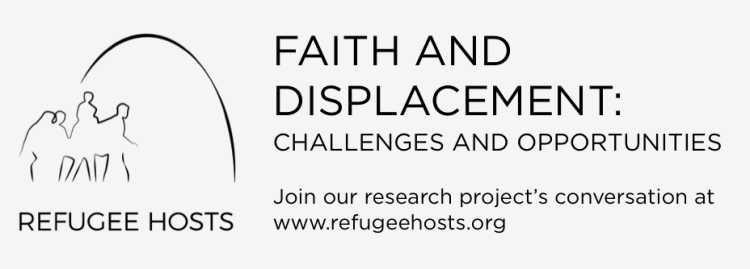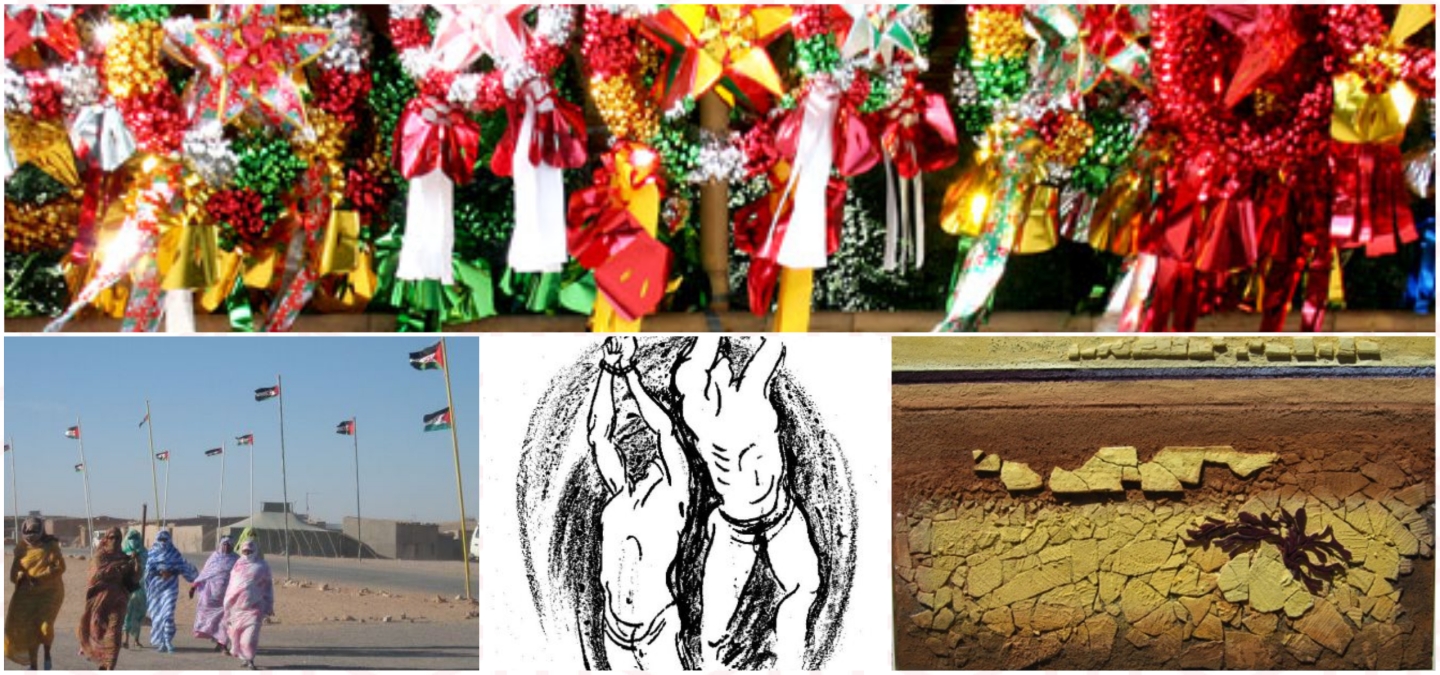Introducing the Series
By Refugee Hosts Co-I Dr Anna Rowlands, Durham University Dept. of Theology
CLICK HERE TO READ THE LATEST FAITH AND DISPLACEMENT SERIES POSTS

This Refugee Hosts blog series aims to explore religion, faith and spirituality as a lived experience – as dynamic traditions that are inhabited, shaped and reshaped by displaced people – and as sets of ideas, practices and structures that shape a common (and contested) experience of the world. Through this series, blog posts will draw on the research and experiences of diverse contributors, from members of our partner organisations, including the Joint Learning Initiative on Faith and Local Communities, to artists and creatives who draw on faith as a way of responding to conflict, trauma and displacement. To this end, this series aims to contribute to the important conversations taking place within academic and policy discussions, offering insights into the important personal, political and communal roles that faith plays in framing hospitality and hostility toward forced migrants. How faith informs the experiences of those displaced by conflict and war will also be explored, illuminating opportunities and challenges for ‘secular’ humanitarians, who are otherwise often reluctant to engage with faith. Indeed, how can we reconcile the ‘secularism’ of the humanitarian system with the explicit and implicit roles that faith seems to play in diverse contexts of displacement, from the Philippines to Italy? This series seeks to explore these questions, contributing to a dynamic conversation that is central to the investigations of the Refugee Hosts project, which will be carrying out research with nine local communities in Lebanon, Jordan and Turkey.
Beyond the Secular-Religious Divide: Adopting a Theological Lens
We are conscious that theological and religious ideas and narratives operate as deep cultural and political forces, shaping our views of time and space, value and purpose. Nor is ‘the secular’ devoid of the influence or presence of theological ideas, despite ‘secular’ world-views remaining at times suspicious of the roles played by ‘formal’ religion in times of crisis. Theological traditions have proved themselves historically to be important containers for ideas that remain pertinent to public speech about migration: from notions of the suffering victim, ideas of soteriology (sin and salvation) to conceptions of sanctuary and hospitality; indeed arguably what we witness, despite claims to secularity, is the migration of such theological ideas towards the political. They have also at specific times and in specific places driven narratives of exclusion and violence that need to be wrestled with and understood. Whilst much public debate, public policy and indeed scholarship can tend to make strong distinctions between what is considered ‘religious’ and what is thought to be denoted as ‘secular’, we expect our research into the experience of displaced persons and local ‘hosting’ communities to blur, to problematize, and to reframe such seemingly clear distinctions.
Click here to read the Faith and Displacement blog series.
Photos Featured from Top Left to Bottom Right: 1) Christmas Parols on sale in the Philippines (Wiki Commons), 2) Sahrawi refugee women arriving at the NUSW Congress in the 27th February Refugee Camp, SW Algeria (c) E. Fiddian-Qasmiyeh, 3) and 4) the artwork of Marcello Silvestri.
* Read Refugee Hosts’ Fiddian-Qasmiyeh and Ager’s article, which was selected by OUP in 2017 as one of 6 “highly cited articles” to showcase “the impressive body of research” published in the OUP Journal of Refugee Studies, here:
Ager, J., Fiddian-Qasmiyeh, E. and Ager, A. (2015) ‘Local Faith Communities and the Promotion of Resilience in Contexts of Humanitarian Crisis’, Journal of Refugee Studies, 28(2): 202-221.

You must be logged in to post a comment.